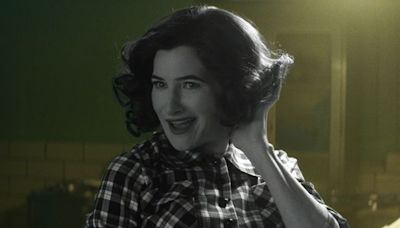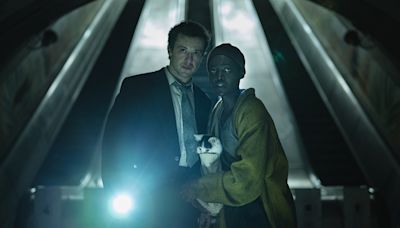Search results
Sep 8, 2021 · Learn how to create memorable and relatable characters for your stories with these six tips from MasterClass. Find out how to give your characters personality, motivation, backstory, and more.
- How to Develop Fictional Characters: 8 Tips for Character Development
How to Develop Fictional Characters: 8 Tips for Character...
- How to Develop Fictional Characters: 8 Tips for Character Development
- Before Building A Character
- What Are The Themes of Your Character’S Story?
- What Does The Writer Say About Your Character?
- What Does Your Character Say About themselves?
- What Do Other Characters Say About Your Character?
- Discuss with Your Director
- What Don’T You Have in Common with Your Character?
- What Do You and Your Character Have in Common?
- What Do You Respect Or Admire About Your Character?
- What Is Your Character’S Relationship to Every Other Character in The script?
- GeneratedCaptionsTabForHeroSec
In my opinion, creating a character is hands-down the best part of the acting process: experiencing someone else’s life, being in someone else’s head and finding out what makes them tick. Whether the character I’m playing walks on for five seconds, or they’re the lead in the story, I will make sure I’ve decided everything about them: what they had ...
Trust me, here: every single time I work on a new script, I tend to underestimate how profoundly having the themeof the story at the front of my mind informs creative choices. It helps eliminate the things we don’t need and keeps us in the same story as everyone else we’re performing with. At the end of the day, everything comes back to theme. What...
In a character breakdown, sometimes you’ll get nothing more than the character’s name. Sometimes, you’ll get their age, occupation and even the details of their relationship to other characters in the story. Write all that down! The character bio that a screenwriter might give you can vary wildly, from the most in depth-description of a character y...
Get your face back in that script and go through it with a fine-tooth comb. If your character says anything about themselves, then get your notebook out and write it all down—no matter how big or how small it may seem. What do these things reveal to you about your character’s self-awareness? Are they a good judge of their own character? Are they mo...
This one’s similar to the previous exercise, but now you’re only looking for what other characters say about yours. Once again, question and deduce whether these things are accurate or not. Are they observations or judgements? Are they telling a story from your character’s past? Is your character present or not present when these things are said? D...
It’s always a good idea to approach the work as a collaborative effort. The best directorsI’ve ever worked with have given me free reign from the beginning and haven’t told me too much of what they want the character to be. But they can always help steer me in another direction if I’m heading too far down the wrong path, or if I’ve hit a dead end. ...
Whether or not there’s a big leap between the character’s life experience and my own, I write down a list of everything myself and my character don’t have in common. These can be as simple as: 1. I didn’t grow up in an urban environment like my character. 2. My character grew up in a family of 7 people, whereas I grew up in a house of 4. 3. We have...
Once you’ve finished that list, get out your notebook and write down every single thing that you and your character do have in common. Once again, it doesn’t matter how obvious or obscure they may be. Every time I do this, it completely surprises me to discover how many things myself and my character have in common. It often helps me understand and...
Even if your character is a tyrannical dictator who kills everyone, I find that writing a list of things I (at the very least) respect, or (at the very most) admire about the character helps me find some sort of empathy for them as a person. Even if you consider their actions immoral or unjust, you still have to be your character’s biggest advocate...
Depending on the script, I prefer to start simple and build on it as I go: “This is him, this is her, she likes him, he likes someone else, that’s her uncle, he’s so-and-so’s brother…” Just so I can keep tabs on the various character relationships. From there, I simply keep adding and writing down details as I discover them. But you can go absolute...
Learn how to create a character for acting with exercises, techniques and questions. Explore themes, dialogue, actions, objectives, backstory and more.
Mar 8, 2024 · Learn how to write a character who feels as complex and real as a person by sketching their inner and outer traits, wants and needs, strengths and flaws, and antagonists. Download a free template and follow a step-by-step process to develop your protagonist.
- 1. Your character’s current goal is why the story exists — and why it’s worth telling. It’s what your character wants from the book’s plot, and wha...
- 2. Your character only becomes interesting when you put a few obstacles between them and their goal. All characters should undergo an internal conf...
- 3. Your character’s strengths will get readers to root for them, admire them, maybe even swoon over them. But don’t forget your character’s flaws....
- 4. There's a myth that characters have to fundamentally change over the course of a story — in other words, be dynamic — in order to be considered...
- 5. You should develop your character’s past as much as possible, but it’s especially important to create and zero in on memories that inform exactl...
- 6. Early in your character development, put a bit of time into sketching out your protagonist's physical features.
- 7. Some character mannerisms will be situationally dependent, coming out only when they’re acting under the compulsion of some strong emotion. Othe...
- 8. Character research comes into play when you’re writing about an aspect of your character that you don’t know much about off the top of your head...
- 9. Now, you have to make sure you aren’t making the biggest character development mistake of all: making your character too perfect. We talked abou...
- Create a background for each character. Our realities are shaped by where we’ve been, where we are, and where we want to go. That being said, the one with the most influence on our lives is where we’ve been – our past.
- Know your characters’ strengths and weaknesses. One of the biggest means of influence over your characters will be their strengths or character weaknesses.
- Create nervous ticks or habits. If you’ve paid attention to humans for long enough, you’re aware that we all have certain habits we don’t even realize we’re doing when we’re nervous.
- No character can be perfect. It can be really hard to write your favorite fictional person as having flaws. After all, we want people to love them, right?
- Establish a character’s motivations and goals. Think of Harry Potter’s quest to defeat Lord Voldemort, fueled by his parents’ murders. Great characters are driven by a deep-seated motivation and have a goal they are trying to reach.
- Choose a voice. Who will be telling the story? First person point of view allows a character, usually the main character, to narrate the story using the pronouns “I” and “me.”
- Do a slow reveal. Refrain from revealing too much the first time you introduce a character. Reveal information bit by bit as you tell the story—not unlike the way people get to know one another in real life.
- Create conflict. Conflict is a literary device that pits opposing forces against one another, most often involving the main character. There are different kinds of conflicts that will impact your character’s decisions.
Jun 11, 2024 · 11 Jun 2024 Fiction. You’ve settled on the idea for your novel. You’ve narrowed it to a sentence or two, and you’re ready to tackle what seems an insurmountable task—developing your lead character. If you’re an Outliner (one who outlines your novel first), it’s time for character development, an endeavor not for wimps.
May 31, 2018 · Learn how to build a detailed biography of your character with a three-part template that covers their physical appearance, backstory, and psychology. Download a free PDF worksheet and get tips on how to make your characters convincing, deep, and memorable.






